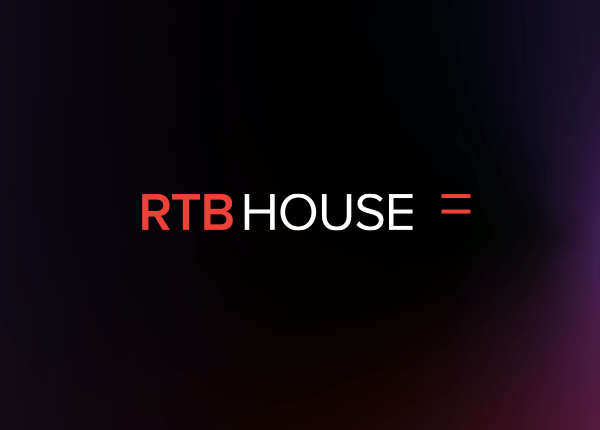Last Updated on: 24th May 2024, 09:48 pm
It’s time for the next part of our “Media Review” series. We take a deeper look at five pieces of content – including digital advertising analyses involving Apple’s ATT, a protocol for a privacy-preserving measurement, and the progress in Google’s Privacy Sandbox.
Table of Contents:
- Progress in the Privacy Sandbox (October 2021) – Google Chrome
- Privacy Preserving Measurement – IETF
- Privacy-Centric Digital Advertising: Implications for Research – Garrett Johnson, Julian Runge, Eric Seufert
- How has Apple’s ATT impacted mobile advertising? – Mobile Dev Memo
- ATT advantages Apple’s ad network. Here’s how to fix that. – Mobile Dev Memo
Progress in the Privacy Sandbox (October 2021) – Google Chrome
= In the latest timeline update, Google does not change the timeline itself, but it doesn’t make the update any less interesting.
= Google introduced the Federated Credentials Management API (FedCM) proposal, which is the new name for the proposal previously called WebID. This proposal aims to “preserve and elevate identity federation (e.g. OpenID, OAuth, SAML)” in light of recent privacy changes.
= While FedCM is still at the early prototype stage, its current shape will result in limiting the possibilities of email-based identifiers in the future.
= Google has also provided an update on FLoC, announcing that it will soon propose exploratory code that would make topics-based FLoC possible. The company aims to discuss the future of FLoC in the new PATCG (Private Advertising Technology Community Group) at the W3C.
Privacy Preserving Measurement – IETF
= Tim Geoghegan from ISRG, Christopher Patton and Christopher Wood from Cloudflare, and Eric Rescorla from Mozilla (CTO of Firefox) published a Privacy Preserving Measurement draft proposing a protocol for privacy-preserving measurement.
= The drafted proposal is based on the concept that a large set of clients depend on a small set of servers, which compute aggregate statistics over a client’s inputs without learning the inputs themselves.
= In the draft, the authors propose and discuss the flow and the roles involved in it, as well as the risks and potential mitigations to them.
= This paper is of special significance, as it is the first large proposal with a key representative from Mozilla involved (CTO of Firefox), indicating which direction the company wants to follow.
Privacy-Centric Digital Advertising: Implications for Research – Garrett Johnson, Julian Runge, Eric Seufert
= Garrett Johnson, Julian Runge, and Eric Seufert have been highly involved in the discussions around the future of advertising, both in web and app environments, and decided to publish a summary of what has already been established and which questions remain to be answered.
= After introducing the concept of the applied limitations on identity practices that adtech faces, the authors distinguish three avenues for research:
= Campaign strategy – the current technology based on user- and impression-level ad buying allows for limitless campaign permutations to measure outcomes and detect frauds. The future technology relies on fraud-detection technologies like Trust Tokens, and measurement proposals to distinguish only a limited number of conversion types, which raises the question of how to set up the campaigns of the future
= Ad targeting – existing targeting technologies are being changed and new, more privacy-preserving concepts, such as FLoC and FLEDGE from Google, have been introduced. According to the authors, research could help answer the question: “How should advertisers leverage new targeting approaches?”
= Ad measurement – cross-site and cross-app identity was a key piece in ad measurement. According to the authors, there are two approaches for the future: identity solutions replacing today’s identifiers based on email addresses or other identifiers, and centralized conversion tracking proposed by Apple and Google. They claim that the research could help answer how to update and combine these technologies
= The authors finish the paper with an important conclusion – there are many more questions that remain to be answered in the domain of rewriting the rules of digital advertising.
How has Apple’s ATT impacted mobile advertising? – Mobile Dev Memo
= Apple’s App Tracking Transparency API went back into the limelight when Financial Times published an analysis – based on Branch data – on how it impacts the market shares of iOS advertising. The analysis indicated a high increase of Apple’s App Store Search market share – from less than 20% at the start of 2020 to around 60% in September 2021
= Eric Seufert from Mobile Dev Memo argues that the analysis is flawed, and while it’s undeniable that Apple improved its position, the actual change could be different because:
= The analysis is based on Branch data, which covers mostly non-gaming apps. Gaming is a dominant category in terms of ad spend
= It covers only mobile app install ads spending and omits e.g. mobile web ads spending
= The data is presented as the percentage of attributed installs and not in absolute values, which omits the possibility that the market shrank
= Seufert further argues that the sheer amount of revenue growth from App Store Advertising for Apple is not the main concern for other entities, unlike the fact that they do not have access to another equivalent advertising channel.
ATT advantages Apple’s ad network. Here’s how to fix that. – Mobile Dev Memo
= Building on the above-mentioned analysis, Eric Seufert published another article, this time discussing how ATT advantages Apple’s own ad network and the potential remedies.
= The author starts with SKAdNetwork, the tool for advertising vendors to attribute app installs. He claims that it is inadequate as an advertising measurement solution due to the lack of granularity and issues with the timer system.
= Eric continues with Apple Search Ads, emphasizing that it’s exempted from ATT, which also allows conversions to be reported as they happen and not through SKAdNetwork. This gives Apple a significant advantage, because the company can attribute such conversions regardless of the Apple’s ATT status.
= The full list of advantages for Apple from the author goes as follows:
= The language used by Apple is significantly different from what is allowed in the ATT prompt
= Apple can collect behavioral data from third-party apps through the payment provision infrastructure in the app store
= Apple Ads Attribution (used for Apple Search Advertising) allows for more granular and complete install attribution data than SKAdNetwork
= Apple dictates a 30-day lookback window for install attribution without ATT
= According to the author, equivalent rights and obligations for each of the above items should apply to both Apple and others. Otherwise, ATT will lead to value destruction and threaten the freemium business model.
If you have any questions, comments or issues, or you’re interested in meeting with us, please get in touch.





























